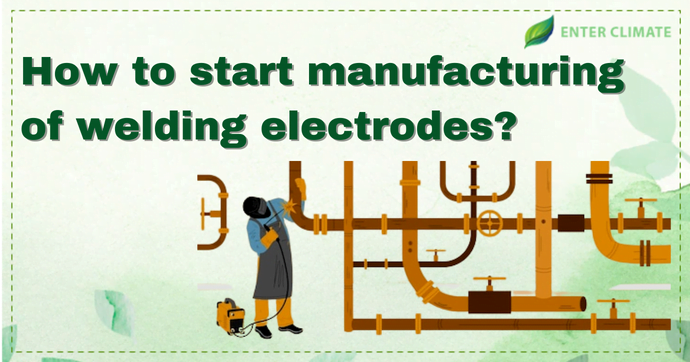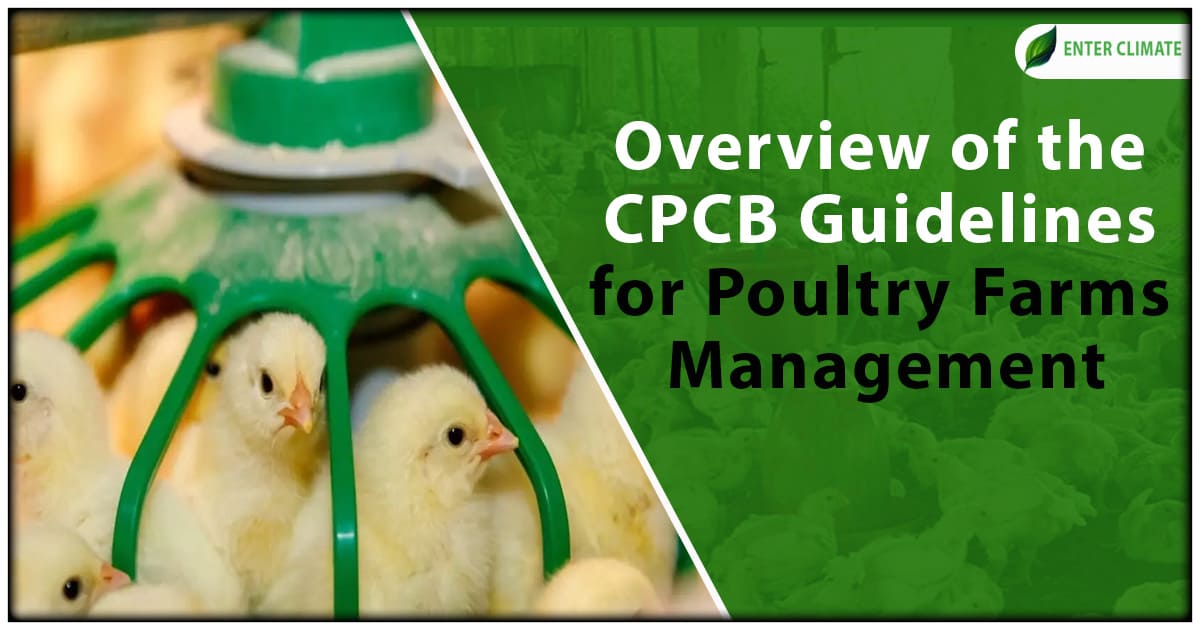How to start manufacturing of welding electrodes?
 13 Dec, 2022
13 Dec, 2022 
Welding Electrodes are commonly used consumables in industries where welding is required. The welding electrodes are used in the construction and manufacturing sector where metal welding is done. The welding electrode business has some advantages associated with it. The setup and manufacturing process is easy, the demand ever increasing, and the raw material required and be procured easily. Also, the higher the quality of the product manufactured, the more premium can be charged. Welding is a critical aspect in construction and developmental, and repair work. The manufacturing of welding electrodes requires the preparation of core wire and rod for welding electrodes, preparation of the dry and wet mix, application of coating material by extrusion and final baking of coated electrodes. The demand for welding electrodes is increasing in line with industrial production in all sectors. There is good scope for this fast-consumable item to be produced in the small-scale sector.The types of welding electrodes in the Indian market today are
- Mild Steel welding rod
- Stainless steel welding rod
- Cast iron welding rod
- Tungsten welding rod
- Hard facing rod
- Plastic welding rod
- Gas rod
- Carbon electrode
- Alloy rods
Although the raw material for electrodes varies depending on the product, the manufacturing of welding electrodes remains almost the same. The difference lies in the material used for coating and the metal used. Factors like tensile strength, corrosion resistance and weldability of the electrodes are some of the critical qualities a buyer looks for in this product and readily pays a premium for quality products. While some welding electrodes, like mild-steel electrodes, go for 500-2000 rupees per kg, specific electrodes such as tungsten welding rods and alloy rods made with Ni-Cu alloy that provide a weld metal with good corrosion resistance to seawater and flue gases can retail for even more. Let’s understand the stages in the setup of this business.
Machinery required for manufacturing of Welding Electrodes
The basic machinery and equipment needed for the manufacturing of welding electrodes are
- Wire drawing machine
- wire straightening and cutting machine
- dry mixer
- wet mixer
- Briquetting press
- wire feeder with wire hopper
- extruder
- baking oven
- de-coating machine
- micrometre for concentricity measurement
- Shrink Packaging machine
- dryer
- conveyer unit
- copper coating unit
Cost: Depending on the availability of capital and resources, fully automatic or semi-automatic manufacturing of welding electrodes can be set up. Depending on the installed capacity, the cost of setting up the plant can be anywhere from 20 lakhs and upwards.
Stages in setting up manufacturing of Welding Electrodes
To set up your own welding electrode manufacturing unit, you need to do extensive research about the manufacturing of welding electrodes. There are many manufacturers in the country with a variety of production lines manufacturing all kinds of welding electrodes. However, to start this business, thorough research of the latest technology, present market demand and analysis of quality raw materials and their suppliers is required. Following are the stages in setting up a welding electrode business.
Preparing a Business Plan
A sound business plan must be the foundation of the manufacturing of welding electrodes. The site selection and detailing facts, including the process, capacity, quality, marketing, etc., must be taken care of.
Sourcing of machinery and workforce
As most of the manufacturing plants are semi-automatic or fully automatic, the nature of the production will depend on the machinery installed by the entrepreneur. Also, as this manufacturing of welding electrodes is not labour-intensive, a small number of skilled and trained employees can seamlessly manage the facility.
Testing of the product
Many manufacturing units have their in-house labs to test the quality and durability of welds as the manufacturer is mandated by law to assure quality factors like tensile strength and longevity of welds. For assessing the mechanical properties of the welded metal, and the usability of an electrode for a particular welding position, the electrodes manufactured in a facility are subjected to the following tests.
Initial Tests: These are qualification or proving tests for a particular type of welding electrode manufactured with a certain standard of basic material and certain production conditions. The modified type of welding electrode must be subjected to the initial tests. It must be implicit in the manufacturer’s certificate that the electrodes certified by him conform to any one classification and satisfy all test requirements prescribed for initial tests for that particular classification.
Periodic check tests: These comprise a few of the tests selected from among the initial tests, which are repeated at intervals to provide evidence that the electrodes currently being produced possess the properties proved in the initial tests.
Production control tests: Using a suitable control system, the manufacturer must ensure that the composition and quality of all the electrodes currently produced are similar to those subjected to the initial tests.
Licences and Authorisation needed forManufacturing Welding Electrode
Licences and Documents required for starting the manufacturing of welding electrodes are as follows.
Consent NOC: As electrode manufacturing units are mainly air polluting, they have a Pollution Index (PI) normalised to 43.75. The manufacturing of welding electrodes has been categorised as an orange-category industry from the green category by the CPCB recently. The manufacturing units, therefore, must apply to their respective Pollution Control Boards (SPCBs) / Pollution Control Committees (PCCs) for the issuance of this No Objection Certificate. The Pollution Board will scrutinize the submitted documents, process the application on standard parameters, and initially issue a Consent to Establish (CTE). Subsequently, a Consent to Operate (CTO) will be issued after the successful completion of a site inspection. Before site inspection, all required pollution control measures must be installed. Documents required for Pollution NOC include
- Duly filled application to the concerned SPCB
- Signed Undertaking
- Rent /lease agreement or a proof of land ownership
- Industry Registration Certificate
- Site/layout plan
- Detailed Project Report.
- Details of point sources of effluent discharge and air emission, along with details of solid and hazardous waste that may be generated.
- Details of finished products, manufacturing process including a list of machinery, the capital cost of the unit (building, land and plant machinery), water balance, source of water, and its required quantity
- Consent fee (as applicable)
- Any other Document specified in the Application Form
- Balanced Sheet Certified by a CA
- Laboratory analysis report of product quality, trade effluent, air emissions etc.
- Any other Document specified in the application form
Factory Licence
Entrepreneurs can apply for a License under the Factories Act, of 1948[1], to the Labour Department of the State. The mandatory information required for application is as follows.
- Applicant details (e.g. Name, address, contact details, etc.)
- Manufacturing Process details
- Worker details
- Details of Machines (E.g. lifts, hoists, lifting machines, etc.)
- Job description
- Escape of dangerous fumes/gases/fire or explosions details
- Materials used for production and construction
- Brief description of the process along with a List of raw materials with quantity to be used in the manufacturing process
Fire NOC
Entrepreneurs can apply for Fire NOC from Fire Department to manufacture welding electrodes. Mandatory information and documents required for this NOC are:
- Applicant’s Details
- Address of Applicant
- Address of Property
- Details of Property such as Building Height, Plot Area, etc.
- Copy of Ownership Document (Lease Deed / Registry / Khasra)
- Building Fire Plans, Elevation Plans, Section Plan of Building
- Copy of Approval letter and Approved Building plan by a competent authority.
- Copy of Approval letter and Approved layout plan by competent authority.
Additional Licences Required for the manufacturing of Welding Electrodes
- BIS certification
- Tie-up with a TSDF operator
- GST Registration
Scope and market overview of Welding Electrode Business
Demand for welding electrodes is directly proportional to a country’s steel production. End-use industries such as building & construction, transportation, oil & gas, and power will likely drive the welding electrode market in India in the near future. Welding stick electrodes dominate the welding electrode market in India. Stick electrodes are used in manual welding and are a low-cost alternative to other welding consumables products and have the biggest share of the welding electrode market. The demand for welding electrodes is likely to experience strong growth in the country owing to the advancements in technology and the growth of the end-use industries. As per some reports, the Indian welding consumables market is likely to rise at a 5.6% CAGR from 2016 to 2025. The market was worth INR 45.37 billion in 2020. In the global market, too, the manufacturing of welding electrodes will grow at a healthy CAGR of 5.3%, reaching USD 19.76 billion by 2025. This growth can be credited to rapid urbanisation and infrastructure development in developing economies such as India and China.
Conclusion
The USP of this business is quality and sound welds that do not contain welding defects such as hot and cold cracks, incomplete fusion, lack of fusion, overlap, excessive porosity, and undercut. A standard welding electrode must have sufficient ductility, tensile strength, yield strength, atmospheric corrosion resistance and notch toughness, which are key requirements for the application of this product. This business has a vast potential that can be captured by entrepreneurs who are looking for a business with the scope of growth and demand. However, proper guidance on legalities involved in the business setup is an essential factor that any new business should look for. This assistance is a small price when it comes to the speedy completion of the business’ legalities that can decide the profitability and hassle-free conduct of the business.












